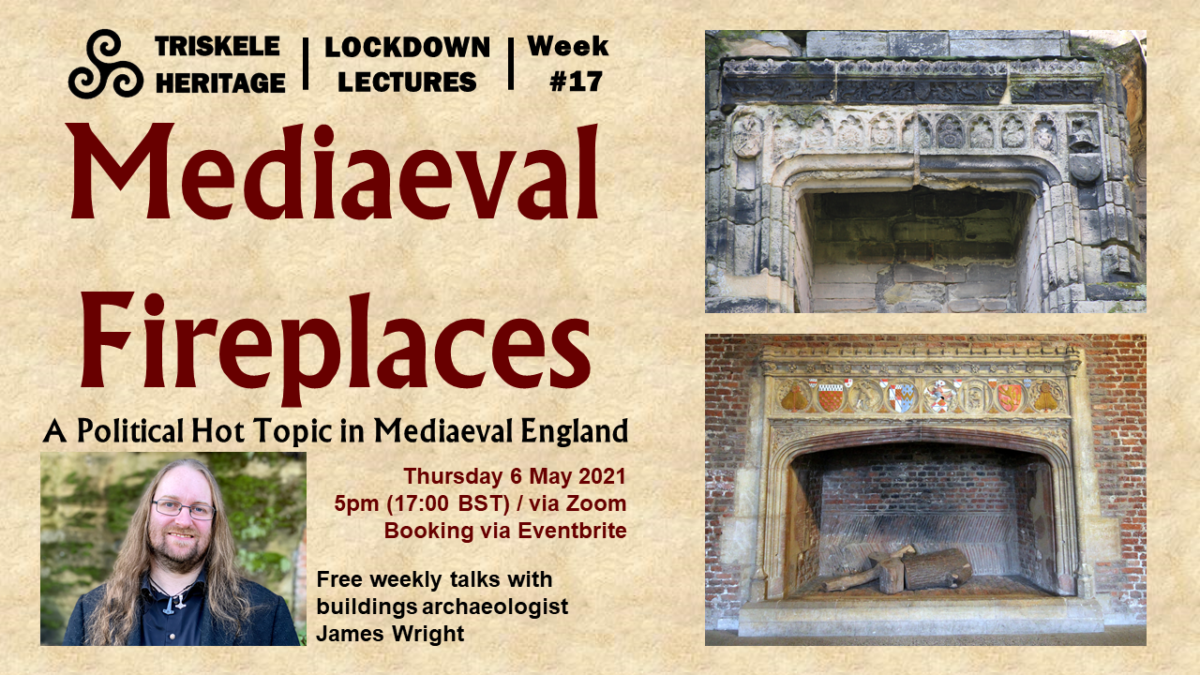With the onset of Britain’s third covid-19 lockdown within a year, Triskele Heritage will be stepping up to try and provide some (hopefully) entertaining and informative free public talks. The weekly lockdown lectures will feature the fruits of our research so you can be sure that the content will all be bang up to date!
Each week we will host a lockdown lecture freely accessible to anyone with a web connection via Zoom. All you need to do is register via Eventbrite and – when the time for the talk rolls around – grab your favourite beverage of choice, get comfy and enjoy.
Our next event will take place at 17:00BST on Thursday 6 May 2021 and will focus on Mediaeval Fireplaces – A Political Hot Topic in Mediaeval England.
Booking is now available via Eventbrite.

Due to our licensing agreement with Zoom tickets for each event will be limited to 495 places. If you cannot make it after booking, please do return your ticket so that someone else can enjoy the talk instead.
Please note that this is a live event only and there will not be a recording of the talk available afterwards.
If you have a question about the event – in the first instance please see our FAQs section. The answer will almost certainly be in there.
More information on the talk
We think of open fires as simple and practical areas of buildings – intended to provide heat, light and something to cook food on. However, in the late mediaeval period the carved sculpture of fireplaces offered an opportunity to demonstrate family connections, sacred messages and political allegiances at a time of growing civil unrest. Using examples from a variety of castles, houses and religious buildings, this talk builds up to a discussion on the use of fireplaces as a vehicle for showing partisan loyalties during the Wars of the Roses.
The speaker, James Wright (Triskele Heritage) is an award winning buildings archaeologist. He has two decades professional experience of ferreting around in people’s cellars, hunting through their attics and digging up their gardens. He hopes to find meaningful truths about how ordinary and extraordinary folk lived their lives in the mediaeval period.

